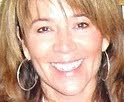 I asked my daughter, Addy, what parents should know about teenagers today.
I asked my daughter, Addy, what parents should know about teenagers today.She immediately had a response: “Parents of teens need to understand that we know a lot about things—more than they think, probably. We get it from TV, Internet and our friends.”
Boy, did I know this to be a true statement.
Just watching TV now will let tell you that. The innuendoes and outright too-much- information peppered throughout even on a Primetime sitcom are not misunderstood by a teenager.
And then there is PG-13 which contains easily sent messages that are not always the ones we want our children to learn.
I was nine-years-old the first time I watched a scary movie on TV. The show was about the Salem witch hunt, and you and I both know that the movie couldn’t have been that scary.
It was on TV in the 1970s, for goodness’ sakes. It freaked me out for months. Addy and her dad have enjoyed watching scary movies since she was a young age. The movies now are much scarier, if you ask me, but they don’t faze her—she mostly laughs at their absurdity.
I did learn the meaning of the most used cuss word of the day when I was in the 2nd grade. I didn’t hear it a lot until I actually arrived at college. My daughter says she hears it all the time—at school, on cable TV, on the radio (yes, have you listened to Sirus or XM radio?) and at the movies, to name just a few places.
The point is that children know more than we did when we were their age. But it’s important to keep in mind this doesn’t mean they are more mature than we were at the same age.
In an article titled “Kids Today Know Far More About Sex,” appearing in a Montreal’s “The Gazette”, Julie Beun said, “I recently interviewed Dr. Michael Popkin, the man behind the Active Parenting movement in Georgia. ‘You want to match your answers to the child's developmental level,' he said. ‘Think about it: 14-year-olds are dealing with sexual issues that we dealt with in college.’" She thinks the problem stems from our children’s exposure to the Internet, TV, movies and the big kids at the back of the bus. I agree. She reminds us, “The trick is not just to ensure they have accurate information—babies don't come from storks or Brad Pitt, no matter what Star magazine says—but to keep it all in context of the values you want them to have.”
“Parents need to understand that is the way it is,” Addy said. And that, my friends, is where Beun’s advice squares with Addy’s. We can’t stop our children from receiving the download, but we can talk to our children about our value systems and what is important to us. They do listen, even if you don’t always believe they do. Beun also reminds us that we do have to untie the apron string and, yes, “sometimes, we do have to let them work things out for themselves.”
So if nothing else today, realize that your teen knows more than you think and that even so, it will be okay. Teens have to deal with knowledge beyond their maturity whether we or they like it or not. It’s the world we live in. As parents and caregivers, we can help them process and deal with mature subject matter by listening, responding and answering tough questions.
Thanks, Addy, for helping me address a much-needed subject matter.
Allyn Evans
www.thealertparent.com
info@allynevans.com


